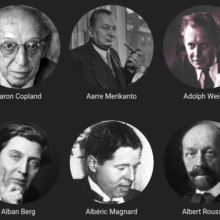Fixing Emby
To begin with, a bit of a recap of the past two blog pieces.
I began this mini-series by reiterating the way I catalogue my music. Fundamentally, it's just organised in Composer/Genre/Composition order. Then, in the second episode, I explained how I used Emby Media Server to share my music around the house, to the car and to overseas hotel rooms... but that Emby didn't honour the cataloguing hierarchy I'd adopted, but instead simply displayed things in Composer/Composition order, missing out the Genre. This was a failing I could live with, though, since Emby isn't the main way I listen to music. [...]





